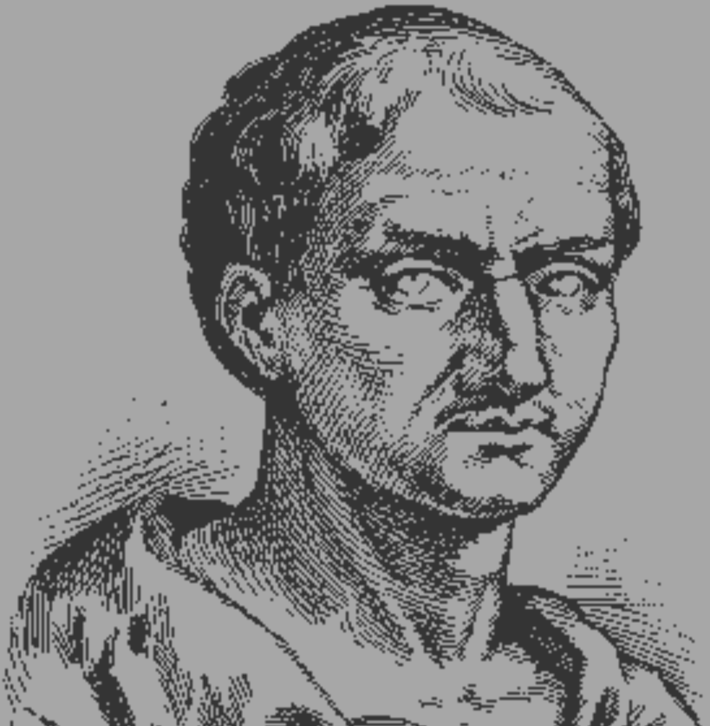Boethius

Boethius (c. 480-524/525) was one of the most influential early medieval philosophers. His most famous work, The Consolation of Philosophy, was most widely translated and reproduced secular work from the 8th century until the end of the Middle Ages. In the 9th century, Boethius’s Consolation was also translated into Old English by King Alfred the Great (his authorship of the 9th century translation has recently been challenged) as well as later English by Geoffrey Chaucer, the author of The Canterbury Tales. Boethius is also credited with the spread of encyclopedic learning and transferring classical Greek knowledge to medieval Europe despite the fact that he didn’t manage to translate all works by Aristotle and Plato as he intended due to his premature death.
Early Life
Little is known about Boethius’s life before his imprisonment and execution in the 520s. He was born around 480 into an influential Roman aristocratic family of Anicii which produced two Roman Emperors – Petronius Maximus (ruled 17 March – 31 May 455) and Olybrius (ruled April or May – October 23 or November 2, 472) as well as several Roman consuls. According to some authors, Pope Gregory the Great came from the Anicii family as well.
Most authors believe that Boethius’s father was Manlius Boethius, Roman consul in 487 although many also think that his father may had been Boetios, the perfect of Alexandria c. 476. It is known that Boethius lost his father at a young age and was adopted by another influential aristocrat, Quintus Aurelius Memmius Symmachus who is thought to play an important role in Boethius’s interest in philosophy and literature by introducing him to Greek-Latin learning and encouraging him to update it.
Where and by whom young Boethius was educated remains a matter of debate. The fact that he was fluent in Greek made many scholars believe that he may had been educated in Athens although many point out that a statement by Cassiodorus, a Roman statesman and Boethius’s contemporary suggests that this wasn’t the case. Many authors also suggest that young Boethius was educated by Ammonius in Alexandria, especially those who think that his father may had been the perfect of Alexandria. Others, however, note that there is no evidence for him ever leaving the Italian peninsula.
Rise to Power and Downfall
Just like many of his ancestors, Boethius held important public offices in Rome. At the time of his birth, however, the Western Roman Empire no longer existed. In 476, the last Western Roman Emperor was deposed by a Germanic chieftain Odoacer who in turn was killed by Ostrogothic king Theodoric the Great. When Boethius was appointed consul in 510, the Italian peninsula was ruled by the Ostrogoths.
Thanks to his scholarly knowledge, Boethius’s soon gained royal affection and in 522, he achieved appointment of his two sons, Boethius and Symmachus as joint consuls which he considered as his greatest achievement. In the same year, himself was appointed magister officiorum, the head of the government and court administration.
Boethius’s political career seemed bright before he lost Theodoric’s favour in 523. At the Royal Council meeting in Verona in the same year, he spoke in defence of former consul Caecina Decius Faustus Albinus who was accused of treason and conspiring with the Byzantine Emperor Justin I. Boethius’s support to his colleague, however, didn’t help either of the two because soon, Boethius was accused of the same crime. Three men stepped forward as witnesses and confirmed the accusations against Boethius. He was arrested and imprisoned in Pavia for one or two years before he was executed for treason. He was buried in San Pietro in Ciel d’Oro, an Augustinian church in Pavia.
Works and Influence
Boethius wrote his most influential work, the Consolation of Philosophy (Consolatio Philosophiae), in the year (or two years) before his execution. The Consolation which is traditionally viewed as the last great work of the Classical era had a major influence on medieval philosophy but it also profoundly influenced early Renaissance thought in Europe.
In the Consolation of Philosophy, written in a form of an imaginary dialogue with philosophy, Boethius argues that there is a higher power and that all the suffering has higher purpose. According to Boethius, the universe is ruled by divine love and true happiness can be achieved not through power and money but by turning to otherworldly virtues. This interpretation perfectly fitted with the Christian doctrine of humility and played an important role in the later Christian philosophy of consolation according to which suffering from evil will be rewarded in the afterlife.
Boethius’s lifelong project – to translate all works by Aristotle and Plato - was never realised but he translated many works by Greek philosophers and helped transmit a significant part of the Greek knowledge to medieval Europe. Some of his most important translations include De Topicis Differentiis and De Arithmetica, while De Institutione Musica, a treatise on ancient music remained the most important work on Western music for nearly one millennium.